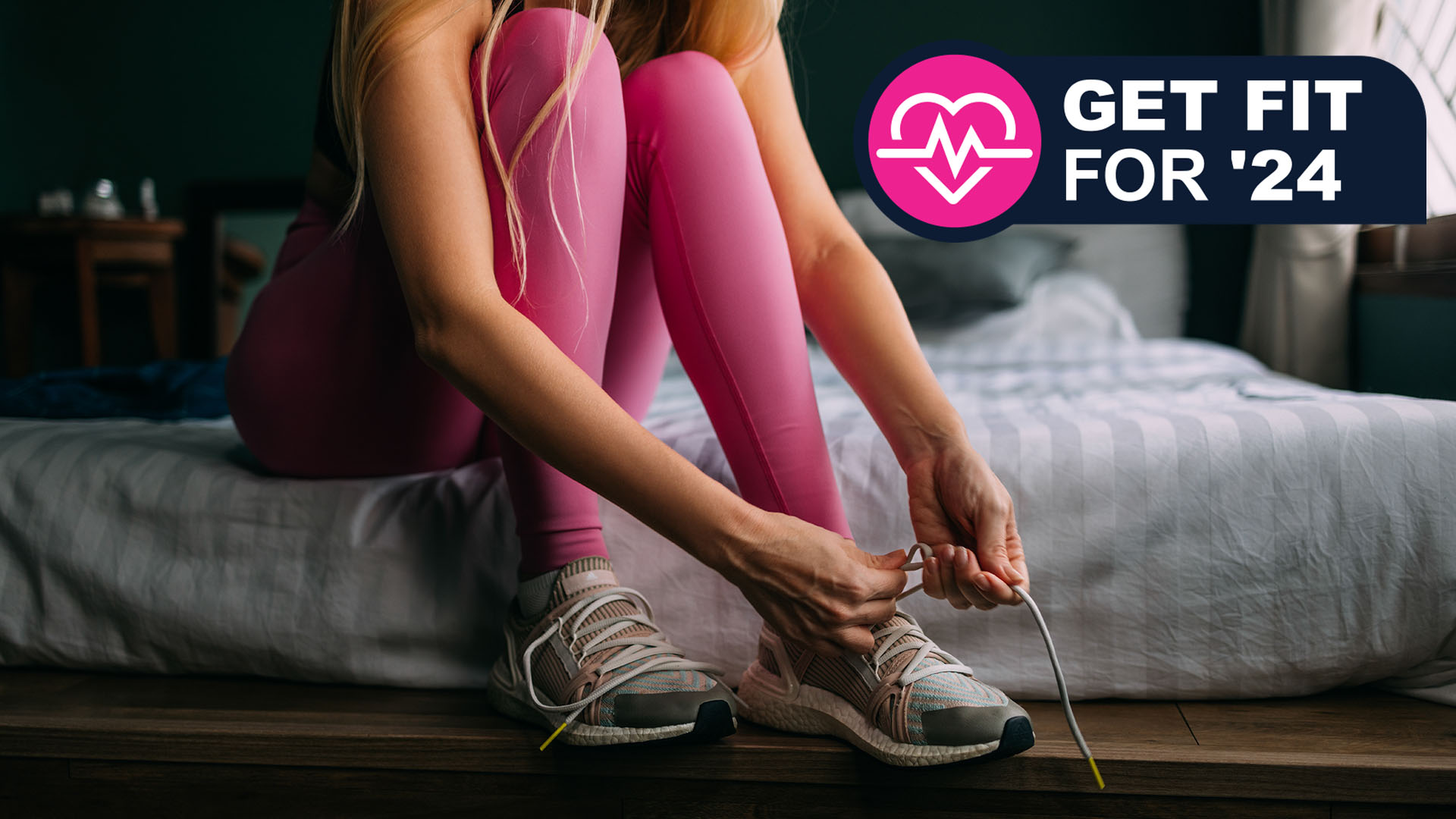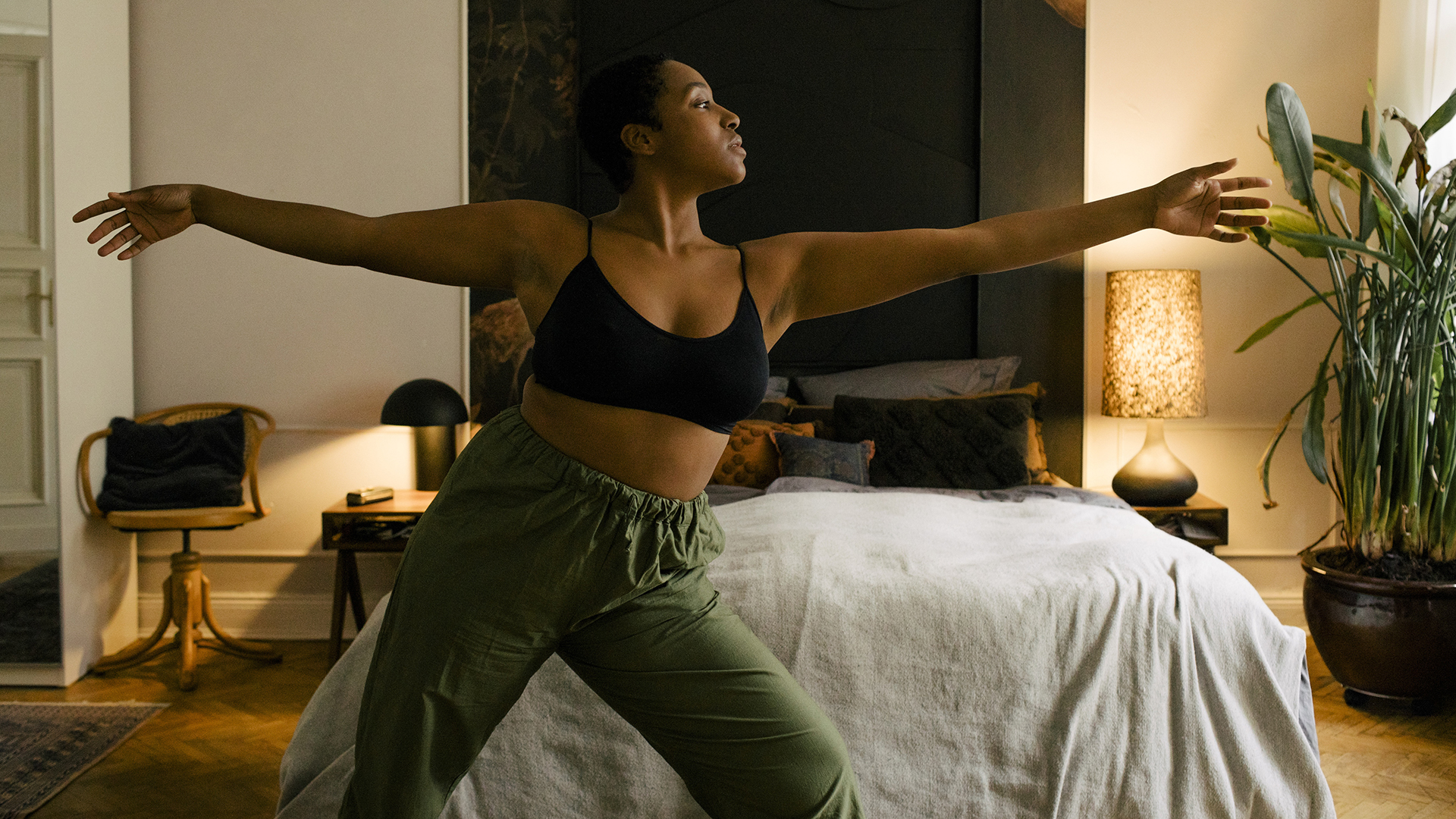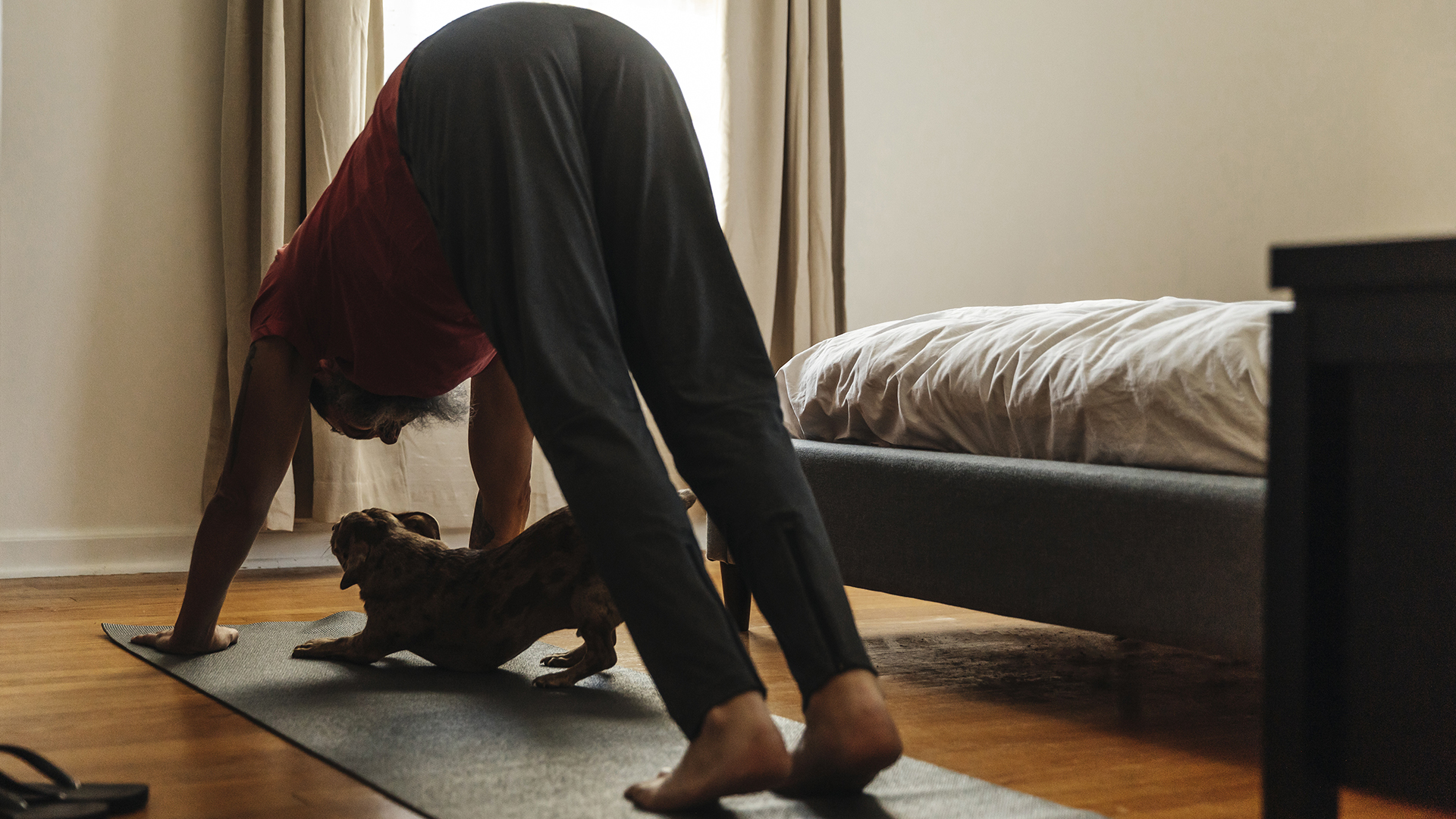When should you stop exercising before bed?
Is evening exercise sabotaging your sleep? Or could a nighttime run be key to healthy rest?

It's no secret that exercise can affect your sleep. It's a commonly held belief that evening exercise is disastrous for good sleep. But for many of us with busy schedules, the best (or only) time to fit in a workout is just before drifting off. If you've been worrying that post-work pilates is keeping you awake, there's good news: recent research has shown that exercising before bed might not be the sleep-saboteur we think it is. In fact, a late night workout can potentially have some benefits.
That doesn't mean a power-lifting session is better than a warm bath for winding down. When it comes to exercising before bed, it's all about balancing intensity with timing. The more vigorous the workout, the higher the core temperature raises and the more the body is stimulated – terrible for your sleep. However, moderate exercise doesn’t have the same invigorating effect, so it doesn't have the same sleep-wrecking quality.
And there's research to back this up. A 2014 study showed adults who engaged in intense exercise before bed found it harder to sleep, while those who enjoyed a less strenuous workout slept easier. These results were bolstered by a 2019 research review, which concluded that exercising in the evening was unlikely to negatively affect sleep, apart from particularly vigorous exercise, which resulted in lower sleep efficiency and more wake after sleep onset.

In addition, it’s better to engage in moderate exercise before bed than to avoid exercise altogether. Regular exercise is vital for good sleep and overall wellbeing, and it can help you sleep when you're feeling anxious. If the only time you have to exercise during the week is in the evening, then switch an intense session for something more moderate, and leave the vigorous training for the weekend.
When deciding what time to stop exercising before bed, the most important factor to consider is the type of exercising you’re engaging in. For a high intensity workout, aim to stop at least two hours before your usual bedtime (earlier, if you can). For low to moderate intensity workouts, stopping between 60 to 90 minutes before bed should have no adverse effects and might actually help you sleep. (If you're struggling to drift off no matter when you exercise, you might need a new sleep setup. Our best mattress guide can help.)
What exercises are best before bed?

If you enjoy exercising at night, or it's the only time you have, then choose a low-to-moderate intensity workout. A low-impact exercise such as yoga is ideal, as it can help both the body and the mind wind down before bed. For similar reasons, a walk or light jog can also be beneficial. When choosing the longevity and intensity of the workout, prioritize your own physical capabilities. In other words, pick an exercie that feels moderate intensity to you.
Whatever type of exercise you choose, make sure you leave time to develop a good bedtime routine. Don’t rush straight from the yoga mat to the mattress. When you’ve finish exercising, engage in the behaviors you normally follow before sleep, so your mind and body know it’s time to go to bed.
Sign up for breaking news, reviews, opinion, top tech deals, and more.
This article is part of TechRadar's Get Fit for '24 week of fitness content.

Ruth is TechRadar’s Sleep Writer. She’s here to help you find the perfect sleep setup for your budget and personal preferences. As well as keeping a keen eye on everything that’s going on in the world of mattresses, she regularly speaks to experts to help you learn how to improve your sleep habits, whether that’s by debunking sleep myths or explaining the science behind it all. Prior to joining the TechRadar team, she wrote features and product guides for new parents hoping to get a decent night's sleep, as well as writing for a variety of online spaces.